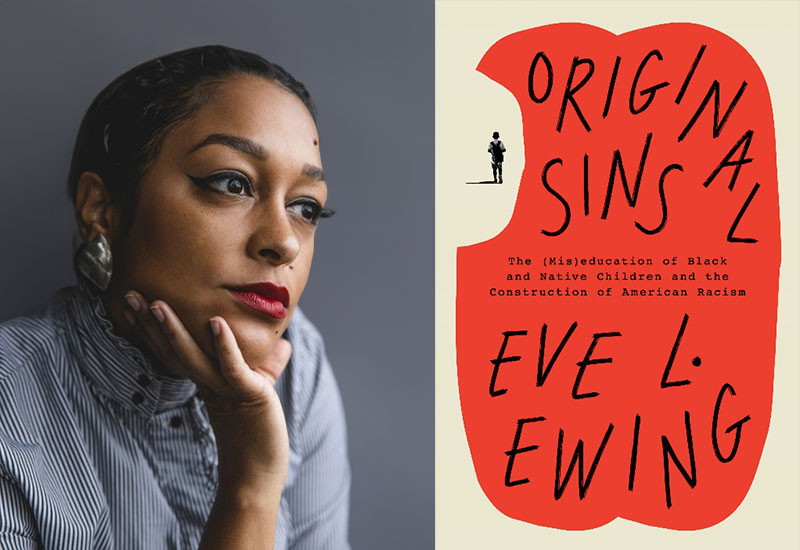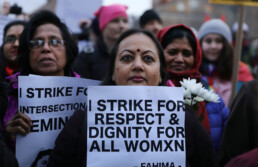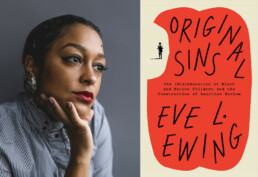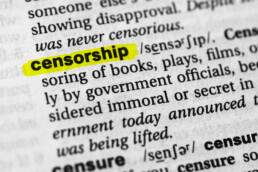A Global Backlash Against Women
 March 6, 2025 Hello, sweet Meteor readers, I live in the tundra, a.k.a. upstate New York, and to us, 50-degree days like the one we’re having today pass as signs of spring. That, and when my kid starts to come home from preschool covered in mud. It’s happening, y’all. Bring on the dirt.  Today, on the occasion of International Women’s Day, we take the temperature of women’s rights around the world. Plus, some good news for abortion, gender-affirming care…and your brain. Thawing out, Nona Willis Aronowitz  WHAT'S GOING ONA global backlash: International Women’s Day, celebrated every year on March 8, is always a good excuse to take stock of how women and girls are doing around the world. Two new reports confirm that there’s data behind what we can clearly see: There’s been a palpable backslide. A new poll conducted by Gallup in 144 countries asked participants, “Do you believe women in this country are treated with respect and dignity, or not?” and found that in 93 countries, women are much less likely than men to say yes. Echoing this data, a new report from UN Women has found that, precipitated by factors like COVID and political polarization, one in four nations reported that backlash impeded progress on women’s rights in 2024.  INTERNATIONAL WOMEN'S DAY RALLY IN NEW YORK CITY, 2018 (VIA GETTY IMAGES) Looking closer at Gallup’s results for the United States in particular, tells us a lot about how gender dynamics have changed here in the last decade or so. In 2012, a full three-quarters of women and 80% of men agreed that women in this country are treated with dignity and respect. Now, those numbers have plunged to 49% and 67%, respectively. That not only points to a huge gender gap in how respondents think women are treated (implying, perhaps, that men are not paying attention?) but a sharp decline overall. In fact, these percentages are the lowest in the United States since Gallup started these polls 20 years ago. So: Are they a bleak reflection of ways life has actually gotten worse for women since the fall of Roe v. Wade, the rise of far-right misogyny, and more? Or do they also show the rise in awareness of sexism and misogyny (a good thing)? For many women and some men, wake-up calls—like #MeToo and Trump’s two wins over two women—may have smashed any illusions of gender equality. Sexual harassment in the workplace was just as bad in 2012, for instance, but maybe now we’re more likely to notice it. Still, the data does make clear that when respondents say women are more likely to live without respect and dignity, they’re often right. The UN Women report found that in the last few years, discrimination against women and girls has risen, legal protections have lessened, the number of women and girls living in conflict has spiked by 50 percent, and funding for programs that support women has withered. If you’re looking for signs of progress, there are some: The report found some improvements over the last 30 years, like greater parity in education, one-third fewer maternal deaths, higher representation of women in parliaments, and more than 1,500 legal reforms striking down discrimination in 189 countries and territories. In a sliver of good domestic news, Pew Research Center also found in a recent survey that the pay gap has narrowed slightly in the United States. So the news isn’t all bad—but it’s a clear indication that progress isn’t linear and that we have a long way to go. The Gallup poll’s gender gap is most pronounced in young people; only 41% of young women think they’re treated with dignity and respect, as opposed to 63% of young men. This is depressing on one level but heartening on another: At least young women’s eyes are wide open to the work they still have to do. It’s an open question when and whether their male peers will get on board. AND:
 REPRESENTATIVE AL GREEN DOING WHAT MANY OF US WISH WE COULD DO: YELL AT DONALD TRUMP. (VIA GETTY IMAGES)
 WEEKEND READING 📚On hypocrisy: A pediatrician who left her seven-year-old daughter behind in the States to care for war-wounded children in Gaza confronts the monstrous lopsidedness of Western media covering the conflict. (LitHub) On loss: A mother writes a eulogy for her beloved Altadena house, which burned in the L.A. fires—and for a world in which the consequences of climate change seem remote (Romper) On reparations: Mina Watanabe explains the history of “comfort women”—a euphemism for women who were sex slaves for Japanese troops in the ‘30s and ‘40s—and what justice would mean for them. (New York Times)  FOLLOW THE METEOR Thank you for reading The Meteor! Got this from a friend?
|
![]()
A Showdown on Capitol Hill
 March 4, 2025 Dearest Meteor readers, Wishing you a happy Women’s History Month…or at least an informative one. This month-long holiday was established in 1987, in the thick of the Reagan era—another historical moment of backlash against feminism. May we take the missteps and thrilling victories of ‘80s feminists to heart. In today’s newsletter, we lay out what to expect tonight during Trump’s speech to Congress (whether or not you actually tune in). Plus, a rare display of spine by moderate Democrats, and a few ways to make Mikey Madison’s support for sex workers more tangible. Re-reading Susan Faludi, Nona Willis Aronowitz  WHAT'S GOING ON
 AND:
 BILLIONAIRE EX-WRESTLING EXECUTIVE LINDA MCMAHON. (VIA GETTY IMAGES)
 FOLLOW THE METEOR Thank you for reading The Meteor! Got this from a friend?
|
![]()
AI's Woman Problem
 February 26, 2025 Greetings, Meteor readers, This morning I read the devastating news that an asteroid scheduled to hit Earth will not be arriving as planned. So I still have to figure out how to potty-train my kid instead of hoping the asteroid will make potties irrelevant. Bummer! In today’s newsletter, we take a look at a new and troubling gender gap. Plus, for New Yorkers, a few reasons not to take your ex (governor) back. Life of the potty, Shannon Melero  WHAT'S GOING ONThe newest gender gap: New research shows that women in the workplace are using AI tools 25% less than men are, creating what researchers call an “AI gender gap.” The main reasons we’re using it less? Women seem to be more worried about being unethical or accused of cheating, especially because they “face greater penalties in being judged as not having expertise in different fields,” one researcher noted in the paper Global Evidence on Gender Gaps and Generative AI. “They might be worried that someone would think even though they got the answer right, they ‘cheated’ by using ChatGPT.” The paper explains that a hesitation to engage with AI more could harm women’s career development in the long run (given that AI is expected to be part of almost every workplace). Studies have also shown that most AI already exhibits gender and racial bias, and the only way to combat that is to expose AI to more diverse input, including user prompts. Avoiding use “could result in AI systems that reinforce gender stereotypes and ignore the inequities women face in everything from pay to childcare,” Harvard Business School’s Michael Blanding writes. However, given the ethical and environmental concerns around AI and the fact that these programs threaten to take the jobs of 79% of working women (but only 58% of working men), it’s not wholly irrational to not want to be involved.  REMEMBER WHEN WE ALL THOUGHT THIS IS WHAT AI WOULD BE LIKE IN THE FUTURE? BICENTENNIAL MAN 1999 (VIA IMDB) But there’s no need to abandon the concept altogether. If talking to ChatGPT—or having Google’s Gemini harass you about rewriting perfectly fine sentences, as it’s doing to me right now—feels like surrendering to The Man’s Internet, then consider bots like Diem or Claude, both of which are ChatGPT adjacent but reportedly designed with women and data privacy in mind. Or learn how to bend AI to your will with an educational platform like Folio. If you’re in South America, try Tainá, an AI assistant built with Indigenous tribes to keep traditional knowledge and Indigenous languages accessible. And not that it matters to the tech bros of the world, but were it not for women, we wouldn’t have the advanced computer systems and algorithms we do now. So just back off, Gemini, I got this. A “terrifying escalation”: A disturbing incident in Idaho this weekend has gone viral. As in other towns across the country, angry constituents at a town hall in Coeur d'Alene, a deep-red district, turned up to protest issues like Elon Musk’s takeover of the federal government and proposed cuts to Medicaid. But at this particular town hall, Teresa Borrenpohl, a former Democratic candidate for the state legislature, was forcibly removed from the event by private security after loudly criticizing the speakers. Borrenpohl was first threatened with pepper spray, then dragged by her feet and hands by unidentified men as witnesses told them to stop and demanded to know who they were. Borrenpohl was later charged with a misdemeanor battery citation. The incident was “pretty violent and traumatic,” one witness told the AP. “It was evident that dissent was not being tolerated,” another observed. The emcee of the event, Ed Bejarana, even taunted Borrenpohl from the stage: “That little girl is afraid to leave!” he shouted. “She spoke up, and now she doesn’t want to suffer the consequences.” The charges against Borrenpohl were eventually dismissed when the incident made national headlines, but the incident felt like a “terrifying escalation” of suppressing public dissent, as The New Republic’s Melissa Gira Grant put it. It remains to be seen whether escalations like this will be replicated across the country if and when protest becomes more widespread. But Borrenpohl hasn’t been cowed: “I think that my civil rights were stripped from me in that moment in a really embarrassing way,” she said. “[Do] we live in a country where you speak out of turn and the result is three men assaulting a woman?” AND:
 A NORMAL GUY NORMALLY SWINGING A CHAINSAW AROUND A POLITICAL EVENT. (VIA GETTY IMAGES)
 THERE WILL NEVER BE ANOTHER. (VIA GETTY IMAGES)
 FOLLOW THE METEOR Thank you for reading The Meteor! Got this from a friend?
|
![]()
"My Life Has Been on Standby"
 February 20, 2025 Greetings, Meteor readers, It came to my attention this morning that we are pretty much at the end of February. This is terrible news. It’s not that I don’t like March; I’m just utterly unprepared for its two major holidays: Women’s March Madness and Ramadan. Selection Sunday is less than a month away, and I will be hosting another Meteor bracket. My bestie, Em, the Meteor’s reigning champion, will be defending their crown, so start thinking about your picks. Glory and a Meteor tote are on the line.  In today’s newsletter, we are headed to Spain for the verdict in the Luis Rubiales case. Plus, a moment of silence for a four-legged hero, another sneaky attack on abortion rights, and your weekend reading list. Prayin’ and parlayin’, Shannon Melero  WHAT'S GOING ONCulpado: Luis Rubiales, the former president of the Royal Spanish Football Federation (RFEF), has been found guilty of sexually assaulting Jennifer Hermoso during the 2023 World Cup. As a refresher, during the gold medal ceremony that year, Rubiales handed the medal to Hermoso, grabbed her by the back of the neck, and forcibly kissed her on the mouth in the middle of an international live broadcast. Despite Hermoso’s obvious shock—and her statement that she didn’t like it—the moment was downplayed by the RFEF, Spain’s coach, and eventually Hermoso herself. Accusations of pressure and coercion quickly swirled—in fact, Rubiales was also charged with coercion for allegedly pressuring Hermoso to say the kiss was consensual, though he was acquitted of that charge. At the time, I wrote about the way The Kiss was a visual manifestation of what Spain’s women’s team had endured from RFEF in the lead-up to its first World Cup win—including an oppressive work environment perpetuated by the team’s coach, Jorge Vilda. Vilda and two other employees from the Federation were also charged with coercion but ultimately acquitted. Vilda is now the coach of Morocco’s women’s national team. When I heard the news that Rubiales was guilty, I felt a jolt of happiness that was immediately replaced by the question so many soccer fans and players continue to ask themselves: What will it take to make the beautiful game a safe one for all athletes?  HERMOSO DURING A MATCH LAST FALL. (VIA GETTY IMAGES) While this guilty verdict is a victory, the consequences are small. Rubiales will not be seeing any jail time; his punishment is paying a €10,800 fine and being banned from coming within 200 meters of Hermoso. The verdict is also a drop in the bucket: Abuse is rampant in women’s soccer, everywhere from the international level to U.S. Soccer to youth leagues. It’s taking years—and in the case of the U.S. Women’s National Team, 20 years—for these tiny measures of justice to be handed out, and yet governing bodies refuse to act with the urgency the state of women’s soccer demands. In fact, just four days after The Kiss, the RFEF actually threatened to sue Hermoso and other players on the team who had signed a letter asking that Rubiales be fired from his position. Meanwhile, Jenni Hermoso still has to work under the governance of RFEF and FIFA, which is contending with its own bevy of controversies. Her first World Cup gold is tainted, and what should have been a glorious experience instead links her forever with at man who assaulted her. “I’m a world champion but it seems that even to this day my life has been on standby,” Hermoso told the court during the trial. “I haven’t been able to live freely.” AND:
 TOO PRECIOUS FOR THIS EARTH. (VIA GETTY IMAGES)
 WEEKEND READING 📚On essential data: Rates of sepsis have gone up in Texas since the overturn of Roe. But the state doesn’t want you to know that. (ProPublica) On the money train: There is a way to stop Elon Musk and his made-up job. But it comes with a hefty price tag. (The Intercept) On going under the knife: One of the most dangerous states to give birth in is continuing to give first-time moms unnecessary C-sections. (Mississippi Today)  FOLLOW THE METEOR Thank you for reading The Meteor! Got this from a friend?
|
![]()
Can you talk about abortion in therapy?
 February 18, 2025 Fair Monduesday, Meteor readers, I am still emotionally recovering from watching my two husbands reunite during the Saturday Night Live 50th anniversary special. I am, of course, talking about José Pedro Balmaceda Pascal Melero and Benito Antonio Martínez Ocasio Melero. Yes, they took my last name because we’re a very progressive throuple. In today’s newsletter, we try to understand what you can and can’t talk about with your therapist in abortion-ban states. Plus, a big payday for the athletes at Unrivaled. I love all my husbands equally, Shannon Pascal Ocasio Melero  WHAT'S GOING ONHow do you feel about that?: Therapy couches are sacred spaces, where people are encouraged to say anything and everything to process, heal, and move forward. But what happens when you live in a place like Texas or Mississippi, and the thing you need to talk about is an abortion that your state has made illegal? “I have this fear of bringing this subject up to my therapist because lines can get very blurry with mandated reporting,” one young Texas woman told Public Health Watch in a story released last week. The woman, who chose to remain anonymous, said she had used abortion pills to terminate a wanted but risky pregnancy and has been grieving ever since. But she feels she can’t work through that grief with a professional because of the “climate of fear” in anti-abortion states, where conservatives promise that anyone seen to be aiding and abetting abortion will be punished. How concerned should folks in therapy be? In most states, social workers and healthcare professionals are also mandated reporters, meaning they have an obligation to report any known or suspected abuse, child neglect, or intent to commit harm—so it’s understandable to be concerned that in a state that criminalizes abortion, a therapist could be pressed to report. But patient confidentiality laws are extremely clear about what qualifies as abuse or harm, and so far, abortion has not qualified. Still, the abortion laws in Texas, with their bounty rewards, are written just vaguely enough that healthcare professionals across fields are unsure of exactly what their clients can say to them or how they can respond, according to Public Health Watch’s reporting. As usual, the chaos is the point. “The intention behind these laws is to stoke confusion and fear so that people don’t seek abortion care and that providers are afraid to provide abortion care and that functionally people stop talking about it altogether out of fear,” Lucie Arvallo of the Texas reproductive rights group Jane’s Due Process told Public Health Watch. But as much as abortion ban states may try to fearmonger, confidentiality laws still protect those in therapy. If you’re concerned your therapist may not be trustworthy, you have options and, more importantly, you have rights. A mental health professional cannot share your name, contact information, or session notes without your consent or a subpoena from law enforcement. More suggestions for addressing the issue (and finding a new therapist if you need one):
AND:
 COLLIER AND THE NATASHA CLOUD DURING A GAME EARLIER THIS MONTH. (VIA GETTY IMAGES)
 FOLLOW THE METEOR Thank you for reading The Meteor! Got this from a friend?
|
![]()
The “Recurring Lies” We Learn in School
As our country marks Black History Month by banning books about race from classrooms, writer Eve L. Ewing looks at the long, complex “miseducation” of Black and Native children.
BY REBECCA CARROLL

AUTHOR EVE L. EWING WANTS YOUNG PEOPLE TO “UNDERSTAND THEIR OWN RADICAL POWER."
It’s been less than a month of the second Trump administration, and already in its crosshairs is the Department of Education. Trump has pledged to abolish it, issued an executive order threatening to defund schools engaging in discussions around race and oppression, and has empowered Elon Musk, a white male billionaire who grew up under the racist apartheid system of South Africa, to cancel $900 million in research grants. If there is a next level of “hope,” we need it now—and no one embodies hope, especially when it comes to education, more than poet and scholar Eve L. Ewing. Her new book, Original Sins: The (Mis)education of Black and Native Children and the Construction of American Racism, approaches the issue of disparity in education—specifically for Black and Native students—with the revelatory question of, “What if American schools are doing exactly what they are built to do?”
From the earliest efforts to offer schooling to formerly enslaved Black people—efforts that were met consistently with questions of whether or not Black people were human enough to be educated—to the compulsory boarding school attendance of Native children with the aim of “civilizing” them, Original Sins unearths the DNA of America’s education system, and lays bare the ways in which our knowledge has “been impacted, and to some degree, severed by colonialism.” And as Trump cuts DEI initiatives in American universities and colleges, one note from the book resonates: Schools, Ewing writes, “have never been for us.” But, she continues, regarding the education system as a whole, “The good news is that people made it, and people can unmake it—and make new things.”
Rebecca Carroll: It seems that from the start, the educational attitude toward Black folks was: We’ll give you subpar resources, but will (mostly) leave you alone as long as you stay away from us (white folks). While for Native Americans, it was: We’re going to steal your children, and destroy all their cultural ties to you. Why were the educational strategies used against Black folks and Native Americans so different from one another? Or were they?
Eve L. Ewing: The United States was founded on land that was violently stolen from the Native people who had lived here since time immemorial, and that land was tilled by enslaved Africans who were stolen from their homelands, degraded, and treated as property. Those foundational thefts enriched the nation at the expense of the lives, land, and dignity of Black and Indigenous peoples. And those actions didn’t happen in one discrete moment—they continue to reverberate in the world we live in today.
So in order for the country to sustain itself, it has required an intellectual underpinning that justifies those evils. It requires a set of recurring lies, to make it all seem okay. And that’s where schools come in: a place to make the lies seem real. Three of those lies that I talk about in the book are: the lie that Black people and Native people are intellectually inferior, the lie that our bodies and our children’s bodies inherently require more discipline and control, and the lie that we are destined for economic subjugation, that it’s our fate in life to lie at the bottom of a capitalist hierarchy.
There are ways that anti-blackness and anti-indigeneity use the same weapons, but there are indeed ways that the strategies diverge. And the reason for that is that white supremacy has historically needed different things from us. It has needed Black people to be subservient, and it has needed Native people to be gone. That’s how I would put it simply.
RC: What do you think is the responsibility of educators who began their careers when the official default was white supremacy? Is there a process of undoing (not a punishment) that needs to occur for teachers of all races who, for perhaps decades, taught children of all races through the lens of racial hierarchy?
ELE: It’s a hard question. I think it’s important to begin by centering ourselves in relationships. All of us—in our personal lives, in our work lives—have had moments when we thought we were doing our best, and it’s made clear to us that the people we loved were not served by our choices. When that happens, we have a choice to make: Do we choose to be defensive, or do we take the opportunity to be reflective? If someone takes the time to try to teach you to do better, to be better, that’s an act of love. Are you able to receive that love, or not? Are you able to be accountable for your actions? That’s a question for folks to ask themselves. At the same time, we need to be making space for people who are radically caring and transformative to enter the profession.
RC: Speaking of undoing racist teachings, you cite the work of scholars Eve Tuck and K. Wayne Yang, who disparage the “easy use” of the word “decolonize.” They note that in recent years, social justice activists have suggested “decolonizing” certain spaces and ideology…but in doing so have actually trivialized the word. Is it not possible, though, for an easy use of a term to also be effective?
ELE: I think the question has to be, effective for what? …Real decolonization is not easy, and if a violent colonial institution continues to profit from harms against Indigenous peoples, having a single book or training or workshop or affinity group and then saying that that is “decolonizing” could be not only misleading—it could be actively dangerous, because it gives people a facile representation of what decolonization is. It reminds me of a moment in 2020 when the university where I work declared that they were committed to anti-racism, which could not have been further from the truth. So I see it as less of a scholarly conversation, and more of a “say it with your chest” conversation, or a “don’t just talk about it, be about it” conversation.
RC: In a recent piece for In These Times, you wrote: “It’s not enough to be afraid of the laws and rules we don’t want to see in schools.…Who are the young people you love most….What are the values you hold dear that you want desperately for them to understand, to inherit?” To your young beloveds, or simply to your readers, what are the values you hold dear that you want desperately for them to understand, and to inherit?
ELE: Thank you for that question! I want the young people in my life to understand their own radical power to love: to love themselves, to love others, to love the lands and waters and more-than-human relatives, and to understand how strong we are collectively when we turn that love into action. I want them to voraciously seek out stories in all forms and to see themselves as storytellers. And I want them to understand Chicago history and the history of great Black artists who shaped culture as we know it.
A President-Free Newsletter
 February 13, 2025 Dearest Meteor readers, Ahead of Presidents Day, we’ve decided to give you a break from all things presidential. (That means we won’t be covering the Linda McMahon confirmation hearings today or her terrifying education agenda, but don’t forget to call your senators.) Enjoy this reprieve while it lasts! Also, you heard it here first: Our annual Meet the Moment event is coming up on International Women’s Day, March 8! It’s a day of intergenerational conversations and performances with women and nonbinary people of all ages—past speakers include everyone from Jane Goodall to America Ferrera, so get ready!! And grab your tickets now. Today, we dig into some ‘70s feminist history, offer a bit of good news out of Kansas, and ask author Haley Mlotek three questions about divorce. Saging the space (for now), Nona Willis Aronowitz  WHAT'S GOING ONThree Marias, full of grace: Maria Teresa Horta, a Portuguese folk hero who helped spark a feminist movement in her country, died last week at the age of 87. She was the last surviving member of a trio known internationally as the Three Marias, who in 1972 published Novas Cartas Portuguesas (New Portuguese Letters). The book was a ragtag compendium that told the story of women’s oppression under dictatorship in Portugal. Their backstory: In 1971, Horta, Maria Isabel Barreno, and Maria Velho da Costa—all well-established writers in their thirties—started meeting weekly for consciousness-raising sessions and bringing notes, fantasies, and letters to one another. Apparently inspired by the 17th century classic “Letters of a Portuguese Nun,” these dispatches discussed everything from rape and domestic violence to abortion and forbidden orgasms. The three women eventually published a collection of these musings, vowing never to reveal which of them had written each fragment.  AN EXTREMELY DOPE MURAL OF THE THREE MARIAS BY ELTON HIPOLITO IN VILA NOVA DE CERVEIRA, PORTUGAL It was a juicy, racy, defiant text that flew in the face of everything Prime Minister’s Marcelo Caetano’s authoritarian regime stood for. It was also a direct challenge to the censors, who had recently banned one of Horta’s volumes of poetry. “Let us put an end to mystifications and false modesty, let us cleave from top to bottom the waters we are drowning in without being able to draw a single breath,” they wrote. “Hasn’t the time come to share with each other, for example, the truths we know about our pleasures in bed?” They weren’t kidding: Throughout, there was straight-up erotica, about “tumescent fruit” and “silk buttocks” and “fingernails scraping your skin.” As expected, the book was banned—but not before it had become an overnight sensation and sold out almost every copy. The Three Marias were swiftly arrested and imprisoned, charged with "abuse of the freedom of the press" and "outrage to public decency.” Caetano declared them three women "who aren't worthy of being Portuguese." The dustup, of course, helped them become internationally famous, garnering the support of icons like Simone de Beauvoir and Adrienne Rich. They were eventually acquitted in 1974 on the heels of the dictatorship’s demise. The Three Marias’ legacies are a reminder that desire for sex and liberation can pierce through even the most repressive governments. Looking back in 2014, Horta recalled that their meetings were her oxygen during an extremely dark time. It “was the most interesting thing of my life,” she said. “It is a book that grabs you because it is a book of political struggle.” AND:
 KANSAS GOV. LAURA KELLY MEANS BUSINESS. (VIA GETTY IMAGES)
 Three Questions About…DivorceAuthor Haley Mlotek’s new book is a tender meditation on the transformative nature of dissolution. The “divorce narrative” has dominated lately, from Leslie Jamison’s Splinters to Lyz Lenz’s This American Ex-Wife to Miranda July’s All Fours, all of which focus primarily on the author’s individual liberation. But writer Haley Mlotek’s new book, No Fault: A Memoir of Romance and Divorce, stands out because it situates her personal story within the complex, painful and sometimes beautiful social history of divorce. Mlotek—a divorced writer with divorced parents, one of whom is a certified divorce mediator—excavates how the dissolution of marriage shaped the last century, and all the unique little heartbreaks and triumphs each divorce leaves in its wake. I spoke with her about divorce’s gravity, its role in this political moment, and how it intertwines with romance. Nona Willis Aronowitz: For me, being divorced is a badge of honor; it was proof I actually did something about my unhappiness. In the last pages of your book, you also admit to feeling kind of attached to your divorced status. In what ways do you think your divorce has shaped you and your desires? Haley Mlotek: There was a slight and almost morbid comedy to saying that I was divorced in the immediate aftermath — I had been married so briefly…and among my friends I was certainly one of the youngest people anyone knew who was going through a divorce. It was easy to turn this moment from my recent past into a joke, or a fun fact, or an easy anecdote in those days. Later, as more people in my life experienced some of the same things I had in my breakup and divorce, I thought more deeply about what that status actually meant to my present moment and my future. There’s a gravity to the status that’s not so easily explained, which I think has actually served me well — rather than relying on easy answers or quips, I had to think carefully about what I actually wanted to share, and most of that was some variation of …"I don't know, and maybe I never will." NWA: Besides your personal story, you lay out the fascinating history of divorce itself, and by extension, marriage—including how both intertwined with feminist movements. What role do you think divorce plays (or should play) in discussions of gender and feminism during this regressive political moment? HM: Historically, [marriage and divorce] have always been an arena that fascists have turned to to exert control over people, and as we see every day, neo-conservative and neo-liberal politicians alike are also quick to use their own ideals of the family to their own political ends. The book Family Values by Melinda Cooper is an excellent study of this, as is Making Marriage Work by Kristen Celello. More than that, this threat of the extreme right turn across the world is an emergency reminder that no struggle is separate from another — the attacks on trans people, undocumented people, and the families of Gaza and Palestine are all part of the same destructive agenda that seeks to dehumanize anyone that stands in the way of a cancerous spread of power. As many of the people I cite in my book note, the family and the couple are the smallest political unit that most people are a part of, which makes it an essential part of how we show up to protect ourselves and our loved ones. The ability to choose how we build our relationships and who we build them with is not limited to marriage, nor is the decision to leave those partnerships limited to divorce, but it is a part of a structure that can build support in the fight against the current regressive political moment and its future implications. NWA: Obligatory Valentine's Day question: What is the most romantic thing about divorce—or is it, by its nature, just inherently anti-romantic? HM: The concept that marriage is something that can be tried more than once suggests a belief that nothing matters more than the pursuit of love. There’s also the fact that romance needs a little bit of tragedy to give it that sense of risk and gravity; the feeling that it can be lost or left is, to me, quite romantic. But that says more about me than it does about Valentine’s Day.  WEEKEND READING📚On enablers: The corporate owner of more than a dozen dating apps has known for years about abusive and violent users on its platforms—but, a new investigation charges, it has been loath to take action or inform users. On principles: Behind New York City mayor Eric Adams’ corruption case was Danielle Sassoon, a deeply conservative and ambitious prosecutor who resigned today in protest. (New York Times) On cannibal teens: Yellowjackets is back, baby! In honor of the Season Three premiere tomorrow, kindly enjoy this profile of Sophie Thatcher, who plays the show’s inimitable goth, Natalie. (The Cut)  FOLLOW THE METEOR Thank you for reading The Meteor! Got this from a friend?
|
![]()
What Idaho Did When You Weren't Looking
|
 February 12, 2025 Hey there, Meteor readers, The U.S. has now officially changed the name of the Gulf of Mexico to the Gulf of America. Given everything else going on, this may seem like a small and petty thing. But, for me at least, the stench of colonialism on this move is so strong it’s smothering. Erasure is erasure is erasure, no matter how big or small. In today’s newsletter, we look at what states have been doing on abortion while we’ve all been distracted with the White House. Plus, mark your calendars: There’s a mass boycott coming this month. Shannon Melero  WHAT'S GOING ONLook over there: The new administration has been generating record levels of news and destruction on the federal level. But while we’ve all been untangling the mess that the president is making of our lives, some states have been rolling out extreme anti-abortion measures—with less media attention than you might expect in more normal times. Luckily, Abortion Every Day founder Jessica Valenti has been neatly gathering all of these legislative measures in one place. So what are states up to? South Carolina is trying to criminalize everything: Valenti describes the state’s latest anti-abortion bill, The Unborn Child Protection Act (SB 323), as a blueprint for “the future [Republicans] want for American women.” SB 323 is aggressive in its cruelty: It removes exceptions (including for incest) from the state’s existing abortion ban; it makes IUDs and morning-after pills illegal; and it proposes criminal charges against anyone who receives an abortion. Missouri is trying to wish away its abortion-rights vote: Last fall, a majority of voters moved to enshrine abortion rights in Missouri’s constitution. But now, a state House committee is blatantly seeking a do-over by putting the issue back on the ballot, but with much stricter terms: The next ballot initiative would ban abortion after 12 weeks, and limit it severely before that. The people of Missouri haven’t changed their minds: The proposal was met with fierce opposition. Still, the new amendment only has to be approved by lawmakers; it doesn’t need petition signatures to get on the ballot. And Idaho is trying to charge people who have abortions with murder: First, the state introduced a bill that would add mifepristone and misoprostol to the state’s controlled substance list, making it a felony to possess or distribute these common, safe methods. (This move mirrors what’s already happening in Louisiana, Texas, and Indiana.) And then, last week, a state senator introduced a separate bill that would re-classify abortion as homicide—making Idaho the sixth state to consider such a bill. The fact that six states have introduced legislation that would classify one in four American women as a murderer is, it’s safe to say, big news. Let’s keep treating it that way. And stay vigilant: What is your state doing—or not doing—to protect abortion rights? AND:
 (PHOTO BY EMILEE CHINN/GETTY IMAGES)
  FOLLOW THE METEOR Thank you for reading The Meteor! Got this from a friend?
|
![]()
This Newsletter Has Bad Words In It
|
Salutations, Meteor readers, As we head into Super Bowl weekend, I want to lay out what would be the best, most chaotic but still entirely possible timeline of events. First, Kendrick Lamar does a duet with Taylor Swift during halftime. It would look like this. Then Travis Kelce scores the first touchdown of the second half, looks directly into the camera, and says, “Are you ready for it?” The Swifties go feral. The Eagles comeback in the final minutes to win it all. Jason Kelce rushes the field, rips off his shirt, and written across his stomach is the release date for Reputation (Taylor’s Version).  In today’s newsletter, we return to reality with federal censorship. Plus, your weekend reading list. Ready for whatever, Shannon Melero  WHAT'S GOING ONBad words: Trump’s war on DEI has taken an absurdist turn that’s ultimately quite serious. The National Science Foundation has been ordered to pull down or halt any research that contains certain forbidden words related to diversity and inclusion. According to reports, the list of banned words given to the NSF and other federal agencies casts an incredibly wide net and includes heinous phrases like “pregnant person,” “BIPOC”, “Black,” “Latinx,” “cultural differences,” “disability,” “diverse group,” “equality,” “gender,” “female,” “historically,” “inclusive,” “LGBT,” “racism,” “trauma,” and “women.” Just to name a few! Notably missing from the list is “male,” “man,” or “white.”  SOME MORE BAD, AWFUL, TERRIBLE WORDS (VIA INSTAGRAM) Now, if the word does appear in a research paper, the corresponding project will not be immediately thrown out the window. Instead, it will have to be manually reviewed to determine whether or not it violates the executive orders on DEI. Nonetheless, let’s be extremely clear: This is censorship throughout multiple federal agencies, and a blatant attack on scientific progress. Darby Saxbe, a professor at USC, also shared a “decision tree” that was included in an email to NSF staffers, laying out how to flag research for further review. “You can't design a study of humans without using at least one of these terms,” she noted, “which means that biomedical, brain, social science research is now on ice in the USA.” Let’s pause for a moment here. Sometimes it’s easy to imagine that fascism or authoritarianism is just the Big Actions, like putting people in prison without due process (already happened) or suppressing the media (in the process of happening). So censorship of this kind may be concerning but still fall short of setting off the big F alarm bell. But please know that I am standing in front of you, clanging a cowbell with all my might because censorship is a cornerstone of fascist government. It is the base Lego piece that holds everything else together and historians argue that we’re watching it happen right now. To demonstrate just how absurd a word ban like this is, the rest of this newsletter will censor all words on the list and mentions of any AND:

 WEEKEND READING 📚On those old tweets: Some people aren’t exactly surprised by On fire: An incarcerated firefighter in California shares what it’s like to do an impossible job. (Teen Vogue) On law and order: Is anything Elon Musk doing legal? A law professor breaks it down. (Vox) On making a comeback: So-called “natural” birth control isn’t new. But femtech apps are pushing a hard rebrand that has drawn in thousands of more  FOLLOW THE METEOR Thank you for reading The Meteor! Got this from a friend?
|
![]()
Another Abortion Provider Targeted
 February 4, 2025 Greetings, Meteor readers, We want to kick off this Black History Month by shouting out our favorite Black-led, independent newsroom, Capital B News. One of the most important things to remember about Black history is that it isn’t just the past—it’s happening right now. So check them out! We already know you love newsletters, so it’s a perfect fit. In today’s newsletter, abortion telemedicine faces another major test, and Rebecca Carroll speaks with author Renée Watson about how we can all work through loss. Xoxo, Shannon Melero  WHAT'S GOING ONThe fight over telemedicine: Margaret Carpenter, M.D., is once again in the crosshairs of anti-abortion lawmakers. In December of last year, the New York-based doctor was sued by the state of Texas for mailing abortion pills to a patient who lived there. Texas Attorney General Ken Paxton brought a civil suit against Dr. Carpenter, arguing that she broke the law both by violating the state’s abortion ban and by practicing medicine in Texas without a license. But because Dr. Carpenter is based in New York, she had some protections under that state’s “shield law.” The Texas suit, advocates argue, was intended to attack shield laws—and now, a second attack has emerged as well. Last Friday, Dr. Carpenter was indicted in Louisiana for allegedly mailing abortion pills to a resident of the state, violating Louisiana’s abortion ban. Reportedly, the pills were sent to a minor whose mother was also indicted for her role in acquiring them. Complicating the case is the matter of which state’s law supersedes the other. New York Governor Kathy Hochul has already said she will not comply with any requests from Louisiana for the extradition of doctors, and just yesterday, she signed legislation strengthening protections for abortion medication prescribers. So who will prevail? “This might be an issue that ends up in front of the U.S. Supreme Court,” one legal expert told Reuters. And if that does happen, advocates worry that the current right-leaning court could end up limiting telemedicine in ways that go beyond abortion access. Meantime, two things are clear: First, abortion pills (and the telemedicine used to prescribe them) are widely used; over five million people have taken mifepristone in the last 20 years, and curtailing the method’s availability would even further limit pregnant people’s healthcare options. Second, medication abortion is safe. As one of the original researchers who worked on mifepristone told The Meteor’s Samhita Mukhopadhyay last year, “Every single thing was done with three times or more rigor than any other drug I've ever heard of. But that's okay because the drug is very good and very safe.” AND:
 PROTESTERS IN DOWNTOWN LOS ANGELES (VIA GETTY IMAGES)
Quick Meteor recommendation: For those of you who’d like to call your representatives (about the things you read about here, or any other issue) but feel overwhelmed or don’t know what to say, may I suggest 5calls.org? It’s a site that not only provides lawmakers’ numbers but also gives you a customizable script for each issue that can help distill anger into actionable demands. I used it yesterday when I was pissed about Elon Musk’s government takeover, but didn’t quite know what to ask for. 5Calls nicely filled in the gaps.  Three Questions About...Loss COURTESY OF RENÉE WATSON For more than a decade, award-winning author Renée Watson has written beloved young adult novels that capture the emotionally complex narratives of Black girls in America, including the New York Times bestseller Pieces of Me, and Ways to Make Sunshine. While her target audience is Black youth, the themes in her books are universal, and she has plenty of adult fans (including me). In All the Blues in the Sky, out today, the main character Sage loses her best friend on her 13th birthday, and readers go along with her as she navigates grief, fear, and loss. I sat down with Watson to talk about those things in the context of our socio-political landscape—and also to hear what her second mother, the late poet Nikki Giovanni, taught her about love. Rebecca Carroll: The book is about the personal grief of a young person, but for so many of us right now, it is a poignant time to be writing and talking about grief. When you wrote the book, did you imagine that it might reach an audience that is grappling with grief on such a broad generational scale? Renée Watson: Yes and no. I wrote the book shortly after we were out of quarantine, and people were getting back to their everyday lives. I thought about the loss, not just of people, but of our way of life and all the transitions that young people had to endure and go through—to not have their graduations or go to prom, to watch their parents be stressed. No one was talking to our young people about grief and how to move past that. But then our neighborhood community, our nation [went through] the Black Lives Matter movement, George Floyd, Breonna Taylor. And I feel like we still need to process all of that. But of course life is life, and so more things have happened. I'm glad that [the book] is timely, but it also makes me sad that it's so timely, and that there's just more and more grief on top of grief. Speaking of Black Lives Matter, in some ways I feel like Black folks are uniquely poised as a people to experience and process grief. Do you agree, and if so, do you think there is value to that? I do. One of the reasons why I wanted to write this book was because I am trying to encourage young Black girls to take up space and find their voices and be bold and brave, but I also want them to be okay with being quiet and being sad and sitting in that. I do think that we as a people have had to endure so much that we are familiar with grief. It is as familiar as a coat you always wear, or an old pair of shoes. It fits in a way that could make us angry, but I also think there's something that brings peace about knowing, “I have survived other things, and I will survive this.” I think we also understand joy, and we understand that you can be going through the worst things and not let those things drown you—that you can still have happiness and love and laughter. I think of how our people would sing and dance through the worst atrocities and how even in these times now, my personal loss[es] that I've gone through in the last few years [her mother, several friends, and her “second mother” Nikki Giovanni], how my friends and my sisters have just come around me to love on me and hold me and have meals together and pray together and laugh and cry. There’s an emphasis in the book on the importance of practicing self-care, which Black folks have done collectively forever. Do you think we will continue to publicly practice self-care at a time when there’s real danger in being visibly vulnerable? I think it's important to keep doing the practices inwardly. It doesn't have to be outward things like posting [on social media] about self-care as a thing we do. But what are your everyday practices of taking care of self? How did our mothers and grandmothers do that? How did they show us in these really small, practical ways that they loved us and how do women especially come together and heal each other? By feeding us and asking us how we were doing, and leaving the night light on. I think about my mother and some of my aunts and all that they went through, and how they sat on the front porch and talked, and gave each other advice and listened and pushed each other to be their best selves, and to make some hard decisions about leaving that man, or getting new skills to get the job. … When my mother died, [poet and writer] Nikki [Giovanni] called me every day for the first 30 days. Every single day. She showed me that love is about what we do, not what we say. She taught me how to show up for my people.  FOLLOW THE METEOR Thank you for reading The Meteor! Got this from a friend?
|
![]()




















